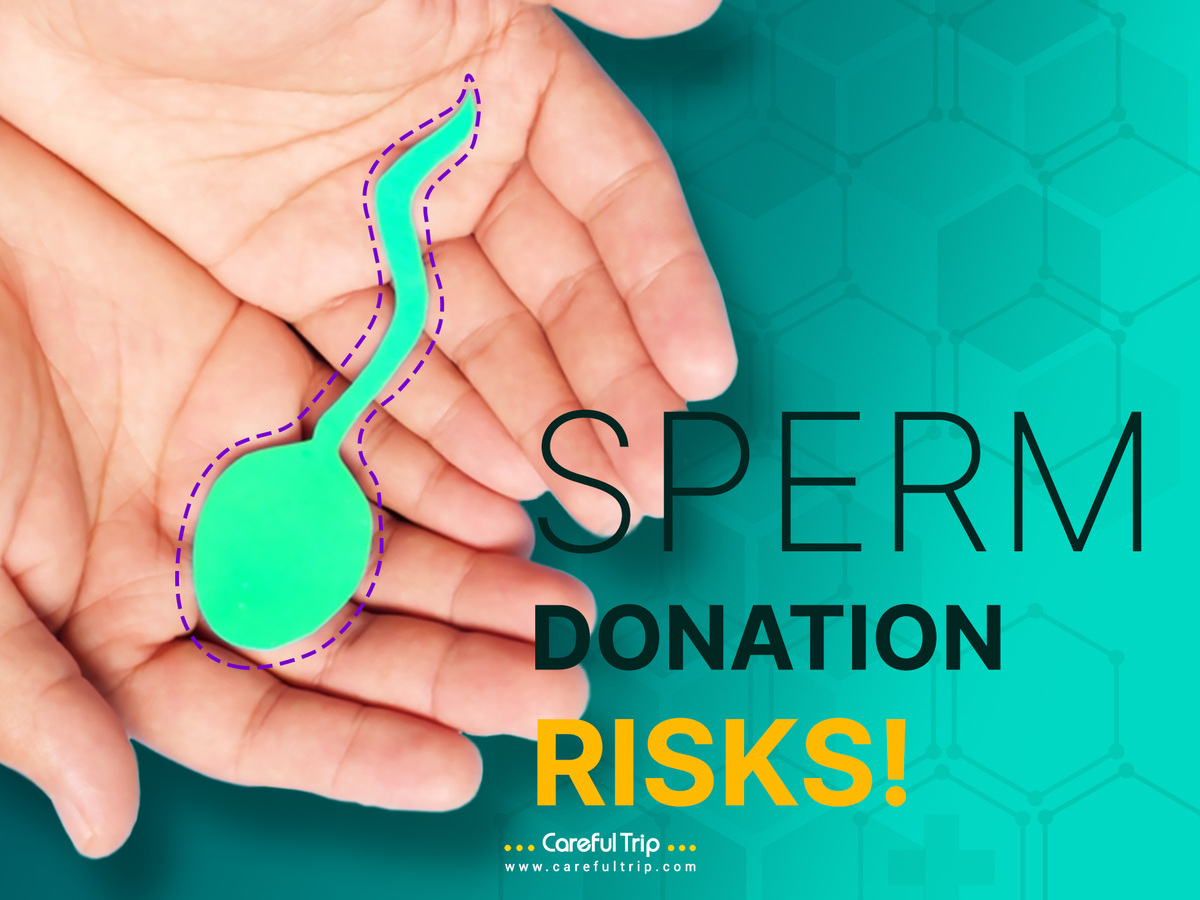
Introduction
In recent years, sperm donation has become a widely accepted practice, offering hope to many desiring parenthood. However, like all medical and biological interventions, it brings forth certain risks and considerations. Understanding sperm donation risks is essential for potential donors, recipients, and medical professionals involved. This article casts light on these risks, emphasizing recent data and expert insights. We will delve deep into the physiological, emotional, and legal aspects, providing a well-rounded perspective. As we traverse this landscape, readers will gain an informed understanding of what sperm donation entails, equipping them with the knowledge to make educated decisions.
Physical and Health Risks of Sperm Donation
Sperm donation, a beacon of hope for numerous aspiring parents, comes with its own set of physical and health considerations for the donor. A paramount aspect is the rigorous medical screenings, encompassing blood tests and frequent semen analyses, which, while ensuring the health and vitality of the sperm, can be exhaustive. Regular donations, requiring repeated ejaculation, can sometimes lead to short-term fatigue or minor discomfort. Prolonged donation schedules may raise concerns about potential impacts on the donor’s future fertility, even though present research predominantly suggests a minimal effect. In addition, there’s a need to address the potential transmission of genetic conditions, ensuring a healthy lineage. The combination of these factors underscores the significance of understanding sperm donation risks from a physical perspective, ensuring that donors are well-prepared and informed about the process and its implications.
For more information, read:
Medical Screening Procedures
Integral to the sperm donation process is the rigorous medical screening. Donors undergo several tests, including blood draws and semen analysis. While these screenings ensure the health of the sperm and protect recipients, they can be invasive and occasionally uncomfortable. As John, a past donor, recalls, “The extensive health checks felt overwhelming, but it’s all for a good cause.”
For more information, read:
Long-term Health Implications
A recurrent concern among potential donors revolves around the long-term sperm donation risks to their health. Studies thus far have not identified significant risks. However, frequent ejaculation, as required in regular donations, may cause temporary discomfort or fatigue. Additionally, there’s an ongoing debate regarding any long-term implications on fertility, with current data suggesting minimal impact.
Emotional and Psychological Considerations
The decision to become a sperm donor is not solely physiological but deeply intertwined with emotional and psychological dimensions. The very notion that one’s genetic material will give life to offspring they might never meet can evoke a spectrum of emotions, from pride to ambivalence. Some donors grapple with the potential attachment or curiosity about their biological children. Additionally, the societal stigmas associated with sperm donation, especially in certain cultures, can lead to feelings of isolation or judgment. Protecting donor anonymity is crucial, but even then, concerns about potential future recognition or connection from the offspring can be a source of anxiety. Donors must be aware of these sperm donation risks, acknowledging the emotional challenges that may arise. Open dialogues with counselors or supportive communities can be pivotal in navigating these emotional waters.
Genetic Offspring Concerns
One of the profound sperm donation risks lies in the emotional realm. Knowing there are biological offspring, potentially numerous, whom a donor might never meet can trigger complex emotions. Some donors may feel curiosity, concern, or even regret. “It’s an odd feeling knowing a part of you is out there,” shares donor Michael.
Societal Perception and Confidentiality
In many cultures, sperm donation can carry stigmas. Donors might face societal judgment or familial disapproval. Additionally, concerns about anonymity breaches and potential future contacts from offspring can weigh on a donor’s psyche. “The societal judgment was unexpected and challenging,” notes Alex, another sperm donor.
Legal and Ethical Risks
Sperm donation, while medically significant, ventures into the intricate domain of legal and ethical concerns. From a legal standpoint, the assurance of donor anonymity is paramount, but evolving laws in some regions challenge this norm, potentially granting offspring rights to trace their genetic lineage. This shift has implications for donors who, in some instances, have faced unexpected legal claims, especially in informal donation scenarios. Ethically, the act of sperm donation raises profound questions. The commodification of sperm debates over donor remuneration and the moral obligations of a donor towards his biological children are topics of intense discussion. As Jane, a legal scholar, notes, “Sperm donation isn’t just a biological act but a legal commitment.” Potential donors need to be aware of these sperm donation risks, ensuring their decisions are grounded in both legal understanding and ethical contemplation.
Anonymity and Future Claims
Legal sperm donation risks are increasingly discussed in contemporary contexts. Some jurisdictions have started recognizing the rights of offspring to know their genetic parents, challenging donor anonymity. Moreover, there have been cases where donors faced legal claims, especially in informal donation settings.
Ethical Implications
Beyond the legal framework, ethical dilemmas also surface. Questions about commercialization, donor compensation, and the moral responsibilities of donors towards their biological offspring are hot topics in bioethics discussions. “It’s not just a simple act; it’s a deeply ethical decision,” states Dr. Anderson, a bioethicist.
Summary
The realm of sperm donation, while offering invaluable opportunities for parenthood, is riddled with complexities. From the physical discomforts of repeated screenings to the profound emotional intricacies of knowing one has unknown biological offspring, the sperm donation risks are multifaceted. Additionally, evolving legal landscapes challenge previously established norms of donor anonymity, ushering in new considerations. The ethical dimensions add another layer, prompting introspection about the very act of donation. Potential donors and recipients must navigate this intricate web with knowledge and care. As we continue to evolve our understanding of sperm donation risks, informed decisions rooted in both empathy and evidence become ever more crucial. This journey, when approached with awareness, can be both rewarding and transformative.

